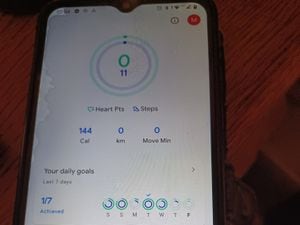Junior doctors strike: Shropshire's medics warn plan for NHS 'unsafe'
Striking junior doctors have used their latest picket to warn that Government plans for the NHS are "unjust, unsafe, and unfunded".

A group of placard-waving junior doctors yesterday stationed themselves at the entrance of the Royal Shrewsbury Hospital for the latest 48-hour strike over the Government's attempt to impose new working conditions.
The junior doctors, some of whom had travelled to Shrewsbury from the Princess Royal Hospital in Telford to take part in the demonstration, received the support of drivers sounding their horns as they passed by.
For Dr Rishwa Vithlani, who works as a paediatric registrar, it was the third time he has joined the picket line. The 30-year-old said: "The contract that the Government is trying to impose on us is basically unsafe.
"The Government admits that the new contract will disproportionately disadvantage women, in particular single parents, and that is so regressive in 2016.
"The seven-day NHS is an unjust, unsafe and unfunded model."
Dr Jonathan Hampson, a 26-year-old who works on the Stroke Rehabilitation Ward after qualifying as a doctor in 2014, was joined on the picket lines by his cocker spaniel Rupert.
He said: "I hope that the demonstrations at hospitals around the country will force the Government to re-enter negotiations about the contract.
"The seven-day NHS was a political phrase that's stretching a five-day elective service. We are waiting for the BMA to lead us on the next step. I don't see how the Government can allow this situation to be prolonged any more."
The striking junior doctors were supported by members from Shropshire People's Assembly Against Austerity and Shrewsbury and Telford Trade Union.
Dr Louise Price, 30, who works at the Oncology Department at Royal Shrewsbury Hospital, said: "The new changes discriminate against those junior doctors who work less than full time. The Government has admitted it is discriminatory.
"I hope that the action being taken by junior doctors across the country will bring awareness and force the hand of the Government. All 25 of my peers in my department will be or have been on strike.
"I think that the new contract will be detrimental to patient care. If the Government adds a robust plan for the seven-day working week most doctors would not be on strike, but as it stands the overwhelming feeling is that colleagues are supportive of junior doctors going on strike even though they are doing twice the work."
Travelling from Telford was Dr Rebecca Rogers, 27, who works on the Acute Medical Ward. She said: "I feel very strongly about the proposed changes to the way we are working. Morale is low and we need to join together. The impetus is for us to stand up for what we are worth."
Debbie Kadum, chief operating officer at The Shrewsbury and Telford Hospital NHS Trust (SaTH), said they had done what they could to minimise disruption to patients.
She said: "As with the previous periods of industrial action, we have once again worked hard to ensure that we have plans in place to minimise any disruption for our patients and that we support our staff during this time.
"Throughout this national dispute our discussions with the BMA and our junior doctors have been positive and we are all clear that we will work together to ensure patient safety.
"While the impact on our patients has so far been relatively low we know that any disruption can be inconvenient – so we have taken steps to ensure that any patient affected has been notified and apologise for the inconvenience this might cause."
A Department of Health spokeswoman said: "This strike is irresponsible and disproportionate, and, with almost 25,000 operations cancelled so far, it is patients who are suffering.
"If the BMA had agreed to negotiate on Saturday pay, as they promised to do through Acas in November, we'd have a negotiated agreement by now."
Dr Johann Malawana, chairman of the BMA's junior doctor committee, said: "We deeply regret any disruption this action will cause to patients, but it is because we believe this contract would be bad for the delivery of patient care in the long term that we are taking this action.
"By imposing a contract that junior doctors have no confidence in and by refusing to re-enter talks with the BMA, the Government has left us with no choice.
"We want a contract that is fair for all junior doctors – not one which the Government has admitted will disadvantage women – and ensures that they feel valued and motivated."





